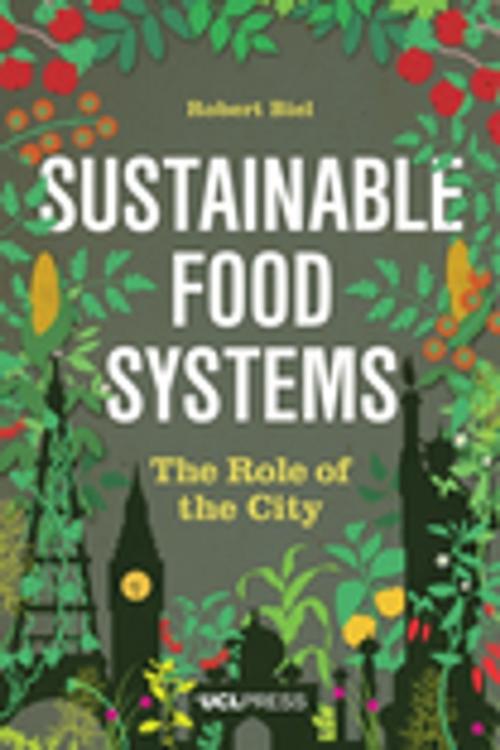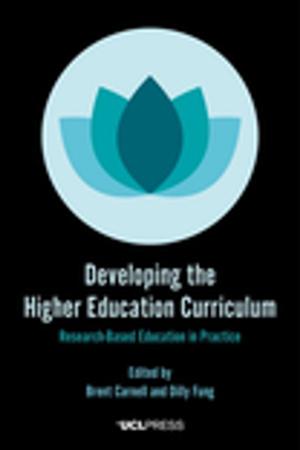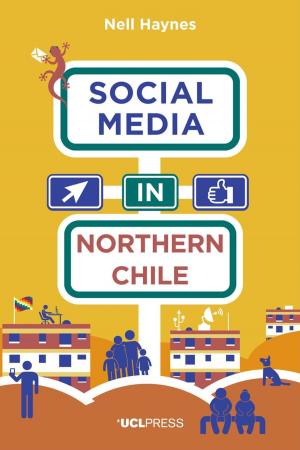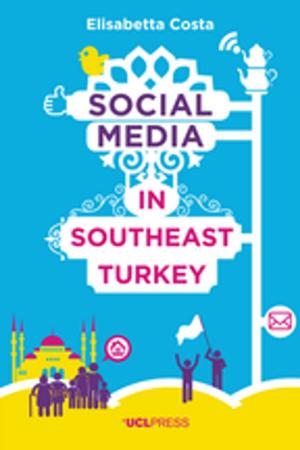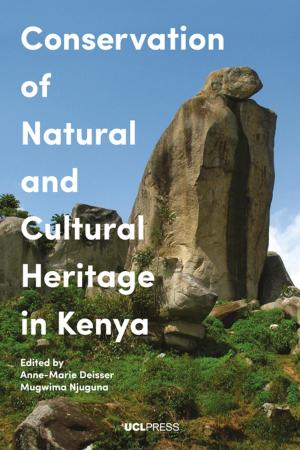Sustainable Food Systems
The Role of the City
Nonfiction, Social & Cultural Studies, Political Science, Politics, City Planning & Urban Development, Business & Finance, Economics, Sustainable Development, Science & Nature, Nature| Author: | Dr Robert Biel, PhD, Senior Lecturer, Development Planning Unit, The Bartlett, UCL | ISBN: | 9781911307105 |
| Publisher: | UCL Press | Publication: | December 5, 2016 |
| Imprint: | UCL Press | Language: | English |
| Author: | Dr Robert Biel, PhD, Senior Lecturer, Development Planning Unit, The Bartlett, UCL |
| ISBN: | 9781911307105 |
| Publisher: | UCL Press |
| Publication: | December 5, 2016 |
| Imprint: | UCL Press |
| Language: | English |
Faced with a global threat to food security, it is perfectly possible that society will respond, not by a dystopian disintegration, but rather by reasserting co-operative traditions. This book, by a leading expert in urban agriculture, offers a genuine solution to today’s global food crisis. By contributing more to feeding themselves, cities can allow breathing space for the rural sector to convert to more organic sustainable approaches.
Biel’s approach connects with current debates about agroecology and food sovereignty, asks key questions, and proposes lines of future research. He suggests that today’s food insecurity – manifested in a regime of wildly fluctuating prices – reflects not just temporary stresses in the existing mode of production, but more profoundly the troubled process of generating a new one. He argues that the solution cannot be implemented at a merely technical or political level: the force of change can only be driven by the kind of social movements which are now daring to challenge the existing unsustainable order.
Drawing on both his academic research and teaching, and 15 years’ experience as a practicing urban farmer, Biel brings a unique interdisciplinary approach to this key global issue, creating a dialogue between the physical and social sciences
**Praise for **Sustainable Food Systems: The Role of the City
‘… this is a very good book which deserves to be read widely by anyone interested in how food sustainability may be enhanced across the globe. As well as appealing to an academic audience, its politically engaged agenda and focus on practical solutions means that it will also appeal to the practitioner community working in the development and humanitarian fields, especially in urban areas. Biel’s admirable insistence that the book is open-access (p. 3) means that it is indeed likely to be read widely and make a significant contribution to scholarly debates in this area, as well as, hopefully, contributing to what the author sees as the paradigm shift required in systems of food production world-wide. Whether this occurs and leads to positive change for the millions of people whose livelihoods are currently threatened by structural inequalities of production and consumption remains to be seen, but Biel’s book starkly illustrates the urgency required in this endeavour.’
Journal of the Royal Anthropological Institute
'a thought-provoking discussion of the history of agriculture with an examination of the current sociopolitical challenges of agriculture and the need for radical change to achieve sustainability. … More than anything, the book highlights how complex the current food system is and asks the reader to consider why this system is in place and how it can be changed for the better.'
Agroecology and Sustainable Food Systems
'Robert Biel's fascinating book on this topic is a breath of fresh air, taking, as it does, a strong and convincing political ecology argument into conversation with more scientific debates around food security in a way which manages to be both critical and constructive at the same time.'
Journal of Political Ecology
*'*We highly recommend Robert Biel’s Sustainable Food Systems. It is an in-depth discussion of the theoretical foundations of sustainability, in particular with relation to food production, drawing on the metasciences of dialectics, complexity and self-organization theory, utilizing the concept of entropy.'
Journal of Labor and Society
‘a critical and constructive contribution to current discourses on food system issues.'
International Journal of Urban and Regional Research
‘an excellent resource for anyone interested in what unsustainable and sustainable food systems look like and the biological, socioeconomic and political complexities that support them. It is relevant reading for students, academics and practitioners as well as policymakers. Whilst it is possible to dip into its chapters independently, the greatest benefit is derived from reading the book as a whole.’
Environment & Urbanization
'This is an impressive book, weaving a convincing narrative about the potential future food system that could overcome many of the tensions in today’s food regime. Whilst a ‘short’ book, it covers a remarkable range of topics, drawing on physics, biology, history, anthropology and geography, all underpinned by a Marxist philosophy.'
Agriculture and Human Values
Faced with a global threat to food security, it is perfectly possible that society will respond, not by a dystopian disintegration, but rather by reasserting co-operative traditions. This book, by a leading expert in urban agriculture, offers a genuine solution to today’s global food crisis. By contributing more to feeding themselves, cities can allow breathing space for the rural sector to convert to more organic sustainable approaches.
Biel’s approach connects with current debates about agroecology and food sovereignty, asks key questions, and proposes lines of future research. He suggests that today’s food insecurity – manifested in a regime of wildly fluctuating prices – reflects not just temporary stresses in the existing mode of production, but more profoundly the troubled process of generating a new one. He argues that the solution cannot be implemented at a merely technical or political level: the force of change can only be driven by the kind of social movements which are now daring to challenge the existing unsustainable order.
Drawing on both his academic research and teaching, and 15 years’ experience as a practicing urban farmer, Biel brings a unique interdisciplinary approach to this key global issue, creating a dialogue between the physical and social sciences
**Praise for **Sustainable Food Systems: The Role of the City
‘… this is a very good book which deserves to be read widely by anyone interested in how food sustainability may be enhanced across the globe. As well as appealing to an academic audience, its politically engaged agenda and focus on practical solutions means that it will also appeal to the practitioner community working in the development and humanitarian fields, especially in urban areas. Biel’s admirable insistence that the book is open-access (p. 3) means that it is indeed likely to be read widely and make a significant contribution to scholarly debates in this area, as well as, hopefully, contributing to what the author sees as the paradigm shift required in systems of food production world-wide. Whether this occurs and leads to positive change for the millions of people whose livelihoods are currently threatened by structural inequalities of production and consumption remains to be seen, but Biel’s book starkly illustrates the urgency required in this endeavour.’
Journal of the Royal Anthropological Institute
'a thought-provoking discussion of the history of agriculture with an examination of the current sociopolitical challenges of agriculture and the need for radical change to achieve sustainability. … More than anything, the book highlights how complex the current food system is and asks the reader to consider why this system is in place and how it can be changed for the better.'
Agroecology and Sustainable Food Systems
'Robert Biel's fascinating book on this topic is a breath of fresh air, taking, as it does, a strong and convincing political ecology argument into conversation with more scientific debates around food security in a way which manages to be both critical and constructive at the same time.'
Journal of Political Ecology
*'*We highly recommend Robert Biel’s Sustainable Food Systems. It is an in-depth discussion of the theoretical foundations of sustainability, in particular with relation to food production, drawing on the metasciences of dialectics, complexity and self-organization theory, utilizing the concept of entropy.'
Journal of Labor and Society
‘a critical and constructive contribution to current discourses on food system issues.'
International Journal of Urban and Regional Research
‘an excellent resource for anyone interested in what unsustainable and sustainable food systems look like and the biological, socioeconomic and political complexities that support them. It is relevant reading for students, academics and practitioners as well as policymakers. Whilst it is possible to dip into its chapters independently, the greatest benefit is derived from reading the book as a whole.’
Environment & Urbanization
'This is an impressive book, weaving a convincing narrative about the potential future food system that could overcome many of the tensions in today’s food regime. Whilst a ‘short’ book, it covers a remarkable range of topics, drawing on physics, biology, history, anthropology and geography, all underpinned by a Marxist philosophy.'
Agriculture and Human Values
